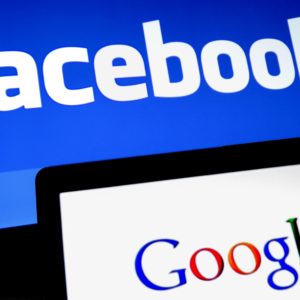In her recent blog post for Medium, Sen. Elizabeth Warren (D-Mass.) discussed breaking up big tech companies, accusing them of stealing revenue from content creators like book authors, comedians, musicians and newspapers.
“We must help America’s content creators — from local newspapers and national magazines to comedians and musicians — keep more of the value their content generates, rather than seeing it scooped up by companies like Google and Facebook,” Warren wrote.
The idea that tech companies like Facebook and Google are primarily responsible for putting newspapers, musicians and other artists out of business (or at least not compensating them fairly) is not new: it’s the basis for the European Union’s controversial updated Copyright Directive (specifically Articles 11 and 13), and Amazon is infamous for ripping off burgeoning writers who sell their books on the Amazon platform.
On Monday, more than 200 European organizations representing artists, authors and other creators sent a letter to the EU demanding the ratification of the updated Copyright Directive, which would force tech companies to pay newspapers, producers and publishers for linking to their work as well as regularly scan for content that infringes copyright.
“This Directive has been long sought to create a much-needed level playing field for all actors of the creative sector in the European Digital Single Market, whilst giving citizens better access to a wider array of content,” they wrote.
But is the lack of compensation for content creators all Big Tech’s fault?
Aram Sinnreich, chair of communication studies at American University, said the entire entertainment supply chain is stacked against the artists, so the idea that Facebook and Google are solely responsible for their compensation is misguided.
Streaming services like Spotify can rip off music artists just like Facebook and Google can rip off newspapers and Amazon can rip off book authors, but the bigger culprits are the publishers, record labels and film production companies, all of which Sinnreich said are “too consolidated.”
“The industries that are promoting that rhetoric are themselves routinely exploiting and defrauding creative labor,” he told InsideSources.
Monday’s letter to the EU, for example, is signed by mainly publishers and producers. In other words, the EU Copyright Directive is a fight over two different industries for a bigger cut of a pie that likely won’t go to the content creators.
At the same time, if Big Tech pays the publishers and producers for linking to and providing samples and clips of creative content, publishers and producers may give more to the artists they represent. If newspapers make more money, they can pay journalists more, as can record labels and publishing houses.
“[Tech] platforms have become an integral link the supply chain that wasn’t there 20 years ago,” Sinnreich said.

